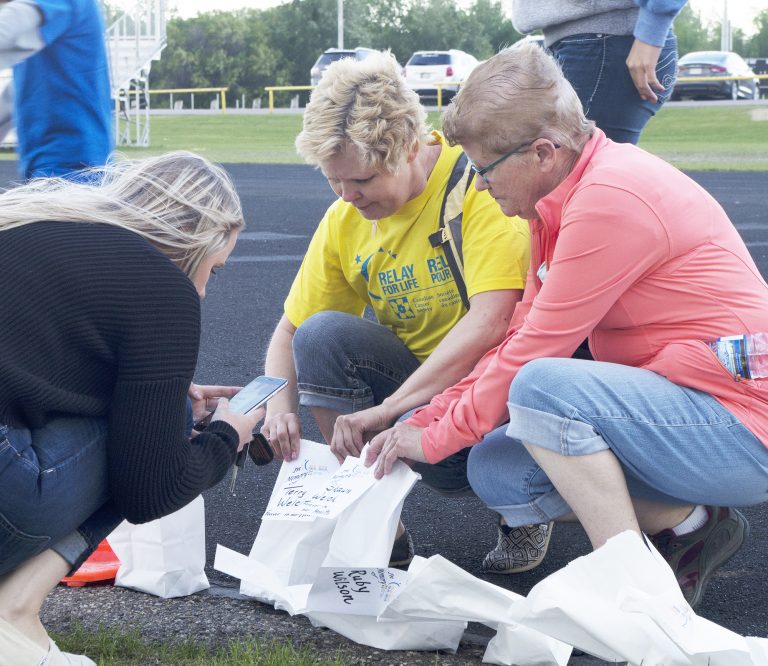
On an early April day in 2016, Candy Braaten was on her way to a doctor’s appointment.
She was concerned about a lump she’d just found on her body, and was about to undergo a mammogram and a biopsy. A doctor had told her 80 per cent of these lumps were benign, so she wasn’t prepared for what she heard.
The biopsy report came back positive. Braaten had breast cancer.
“I was pretty shocked,” she remembered. “Really shocked. I thought, ‘I’m young. I’m very healthy. I’m very active. I watch what I eat.’ I was really in shock.”
Despite being jolted into a new and unwanted world, Braaten approached the next few months with determination. She wasn’t the first member of her family to have cancer, and if they could beat it, then she would too.
More than a year later, she was in Prince Albert wearing a yellow survivor’s shirt, walking in her first ever survivor’s lap at the Relay for Life.
“I had thought I might feel a lot of emotions, like crying … but actually I felt really happy to be in this big group of yellow survivors,” she said. “It was an honour to be one of them.”
For Braaten, fighting cancer was as much a mental battle as a physical one. Even though she had strong support from her family and friends, feelings of isolation started to creep in.
She overcame those feelings through social media, setting up a Facebook page to help friends and family members stay updated on her progress. The changes worked, but Braaten still remembers those early trials.
“Even though you’re not the only one with breast cancer, you tend to feel like you’re the only one going through it,” she explained.
The importance of maintaining family connections and friendships during treatment is a common theme among survivors.
For the rest of this story, please see the June 6 online or print edition of the Daily Herald.
